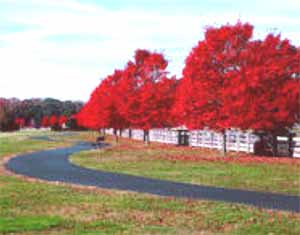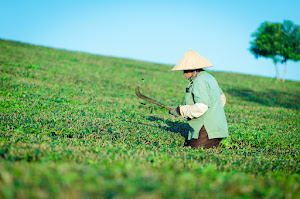The idea of school farms is not just a fad; its a revolutionary method that’s changing the way we learn. These farms, which are often inside or next to school areas, are becoming more than just places to grow crops.
They are great places to get students more involved, help them learn useful skills, and plant the seeds of environmental responsibility. But how exactly do these green havens do this? Let’s learn more about the pros and cons of school farms and how they affect student involvement.
Our Experience on School Farms
Encapsulating farm experience in a well-crafted essay or report can be both enlightening and rewarding. This process of documentation allows you to delve deeper into hands-on activities and reflect on the broader implications of what you have learned. When it comes to structuring your thoughts and ideas effectively, an online writing tool can be immensely helpful.
Utilizing a free thesis statement generator helps in creating a focused and compelling starting point for an essay. This tool is designed to assist in producing unique content of high quality, ensuring that student reflections on farm experiences are not only
personal but also academically sound. Moreover, the use of such an online resource enhances writer skills, enabling you to communicate your insights in a clear and engaging manner.
Writing about experiences, therefore, becomes not just an exercise in reflection but also a skill-building activity, blending practical learning with academic excellence.
The Roots of Learning: Connecting Students with Nature
School farms are really awesome because they help students be close to nature. It’s like having nature in the classroom! Kids can learn about plants, animals, and how things work in nature.
They see how food grows and take care of animals. School farms show why it’s important to look after our environment. They make kids love nature and become good friends with it.
The Power of Hands-On Experience
There’s something naturally interesting about getting your hands dirty in the field of learning. School farms give kids a chance to learn by doing things that they usually can’t do in a regular school.
Imagine that students could leave the classroom and enter a living, open-air lab where biology, ecology, and farming skills come to life. Doesn’t it seem interesting that putting a seed can help you understand life cycles and food systems more deeply?
Fostering a Connection with Nature
In this modern age, where screens often take over, school farms are a nice change of pace that bring students back into contact with nature. This link isn’t just about learning about the world; it’s also about loving and caring for it. Can you picture the wonder in a child’s eyes as they watch a seed they planted grow? Here is where what you learn in school turns into a real-life experience that sticks with you.

Cultivating Skills Beyond Farming: The Educational Harvest
School farms are great for students to learn many things. They are like special places where kids can find out how to grow food, take care of animals, and know about nature. It’s a fun way to learn about being responsible, working together, and how everything in nature is related.
Students not only get fresh food but also lots of knowledge that they can keep forever. School farms are like the best classrooms, teaching kids useful things from nature.
Learning Responsibility and Teamwork
School farms aren’t just places to plant and gather food; they are also places to learn important life skills. When a student is told to take care of a plant by watering it, pulling weeds, and watching it grow, they learn responsibility. And how about working together?
Working together is an important skill that is respected in all areas of life. When students plan a garden or work together to solve a problem on the farm, they learn how to communicate and work alongside others.
Enhancing Academic Achievement
It’s interesting that school farms can also help kids do better in school. Farm tasks can help kids remember things they have learned in history, science, and even math class. For example, measuring how much plants grow can help with math, and learning about crop rotation can help with lessons about how people farmed in the past. Who knew a farm could be a place to learn so many different things?
The Environmental Impact: Cultivating Eco-conscious Citizens
School farms can be good for the environment, as the farms teach students to care for the Earth and use eco-friendly ways to grow food. This also helps our planet.
But, school farms need to be careful with water and waste to be even better for the environment. So, school farms help kids learn how to take care of the Earth, which is a great thing!
Understanding Sustainability
As climate change and environmental damage get worse, school farms are great places to teach kids about being environmentally friendly. Students learn not only how to grow food, but also how to do it in a way that doesn’t hurt the environment.
Have you ever thought about how composting on a school farm could help teach about the life cycle of organic matter and how it helps keep the earth healthy?
Promoting Biodiversity
Ecosystems can also find safety in school farms. These farms teach kids about the value of biodiversity in ecosystems by growing different kinds of plants and animals and making places for them to live. Don’t kids learn a lot when they see how different animals and plants live together and help each other?
Nourishing Bodies and Minds: The Holistic Benefits
School farms are great because they help students and communities in many ways. Kids can learn about farming, teamwork, and taking care of the Earth there. They also learn how to grow healthy food.
School farms can be in cities or the countryside, and they sometimes sell extra food to help the farm and teach more. They’re not just for students; parents and everyone in the community can join in. In a nutshell, school farms are like fun outdoor classrooms for everyone.
Healthy Eating Habits
It’s not a secret that kids are more likely to try things they grew themselves. Farms at schools are a great way for kids to learn about nutrition and start eating in a healthy way. Getting students interested in growing fruits and vegetables makes them more likely to eat them. Taking care of both your yard and your body is a beautiful cycle, isn’t it?
Mental Health Benefits
It is well known that gardening and spending time in outdoors are good for your mental health. For students, school farms can be a safe place where they can get away from the stress of school and enjoy the peace and quiet of nature. Being in this green space can help you feel less stressed and more at ease.

Final Words
School fields aren’t just places to learn; they are places that change student’s lives and keep them busy in many ways. The effects of these green spaces are huge. They help people connect with nature, learn useful skills, and be good stewards of the earth. They teach in a way that is good for the whole person, mind and body.
As we deal with the problems that come with modern education and the world, school farms stand out as places of hope and growth. Their goal is not just to grow plants, but also to make future citizens who are involved, informed, and responsible. Don’t you agree that this harvest is worth putting money into?
Frequently Asked Questions (FAQs)
There are many questions people often ask which are related to school farms. Here we are trying to list the common questions about school farms and trying to answer them. We hope you will find answers to your questions. Don’t hesitate to ask us if you have more questions.
What is a school farm?
A school farm is a special area in a school where students and teachers can learn about farming. They grow plants and take care of animals there. It helps students understand how food is made and why it’s important to take care of the land.
Why do schools have farms?
School farms do a lot of things. They help students learn by doing things practically, teach about farming and taking care of the Earth, and give food to school cafeterias.
What do students learn on a school farm?
Students learn many things on a school farm, like how to farm, work together, be responsible, care for the environment, and why eating healthy is important.
Are school farms only for rural schools?
No, school farms can be in the countryside or the city. Even in the city, schools might have little gardens or special systems to show kids about farming.
Do students have to participate in school farm activities?
No, it’s not a mandatory option. At school farms, students usually don’t have to join, but it’s a good idea because they can learn a lot. Some schools even make farming part of what they teach in class.
What types of animals are typically found on school farms?
Common animals found on a school farm include chickens, rabbits, goats, and sometimes larger livestock like cows or pigs. The choice of animals depends on the school’s resources and goals.
How do school farms benefit the community?
School farms help the community by giving fresh, nearby fruits and veggies, getting students to help the community, and showing how to take care of the Earth.
Are school farms environmentally friendly?
At school farms, they like to do things that are good for the Earth. They use natural ways to grow things, make compost, and save water.
Can school farms generate revenue?
Depends on numerous factors. Some school farms sell extra fruits or things they make to get money. They use that money to make the farm better or teach more things.
Are there any organizations that support school farms?
Yes, there are organizations and initiatives that support school farms, such as Farm to School programs, agricultural education associations, and local community groups.
Can parents get involved in school farm activities?
Parents are often encouraged to help at school farms. They can volunteer, raise money, or join in farm events.






